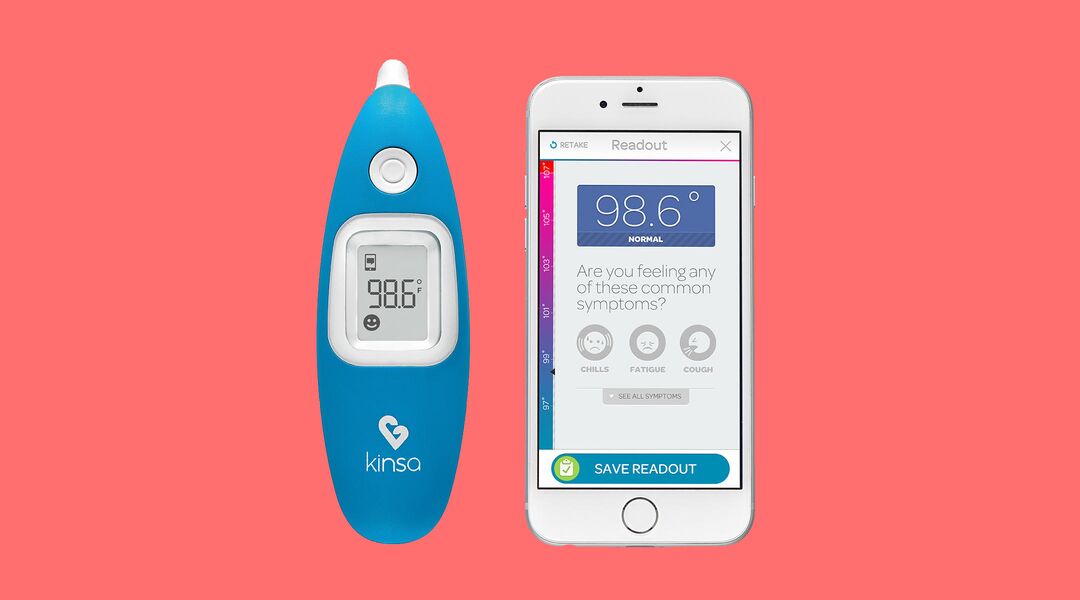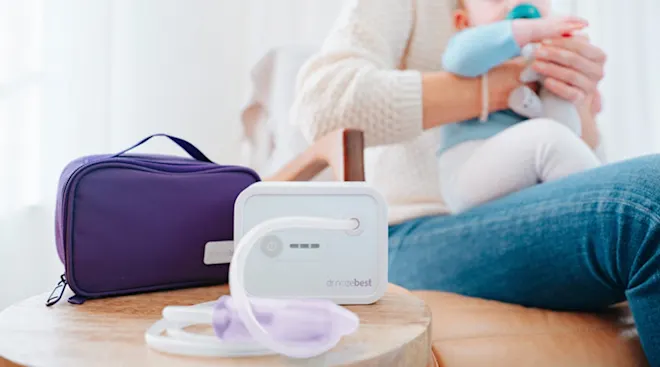How Kinsa Smart Thermometers Are Taking on the Flu
We rely on the CDC’s weekly flu report and flu map to tell us just how bad the virus is at any given time. The problem? That data is a week or two behind. So researchers set out to find a way to track the flu in real-time. And they’re relying on a tool you might already have in your home.
Researchers from the University of Iowa used Kinsa Smart Ear Thermometers and their corresponding apps to analyze over 8 million temperature readings from all 50 states. (And no, the information was not linked to anyone’s identity; it’s all encrypted.) The app also allowed them to sort data by age and sex. After comparing all that fever information to influenza-like illness (ILI) activity data gathered by the CDC, researchers noticed a strong correlation between the two, both at national and regional levels.
Because people are generally taking their temperatures before they go to the doctor, researchers say the Kinsa information is helping them identify flu trends ahead of the CDC data.
“Our findings suggest that data from smart thermometers are a new source of information for accurately tracking influenza in advance of standard approaches,” says senior study author Philip Polgreen, MD. “More advanced information regarding influenza activity can help alert health care professionals that influenza is circulating, help coordinate response efforts, and help anticipate clinic and hospital staffing needs and increases in visits associated with high levels of influenza activity.”
By combining smart thermometer data with existing CDC data, researchers accurately predicted influenza activity at least three weeks in advance. Plus, smart thermometers helped them determine the average length of a flu-season fever: three to six days.
Earlier forecasting means better preparedness for the flu. If you know the flu rates are about to skyrocket in your community, you may be more apt to get the shot, stay home from work, or see a doctor if you’re symptomatic.
Please note: The Bump and the materials and information it contains are not intended to, and do not constitute, medical or other health advice or diagnosis and should not be used as such. You should always consult with a qualified physician or health professional about your specific circumstances.
Navigate forward to interact with the calendar and select a date. Press the question mark key to get the keyboard shortcuts for changing dates.




















































